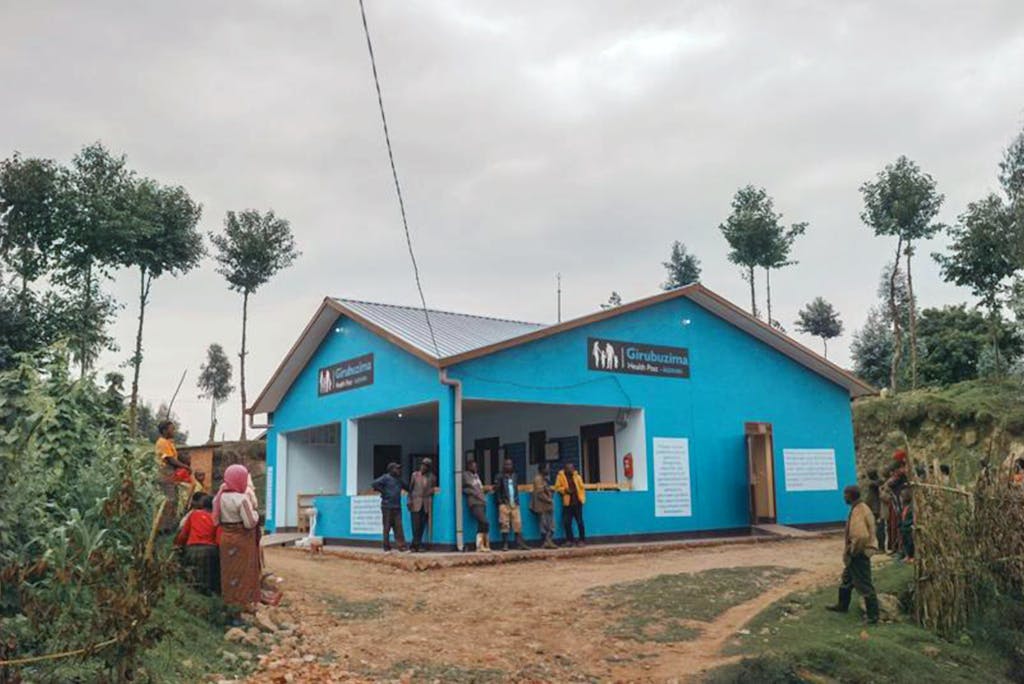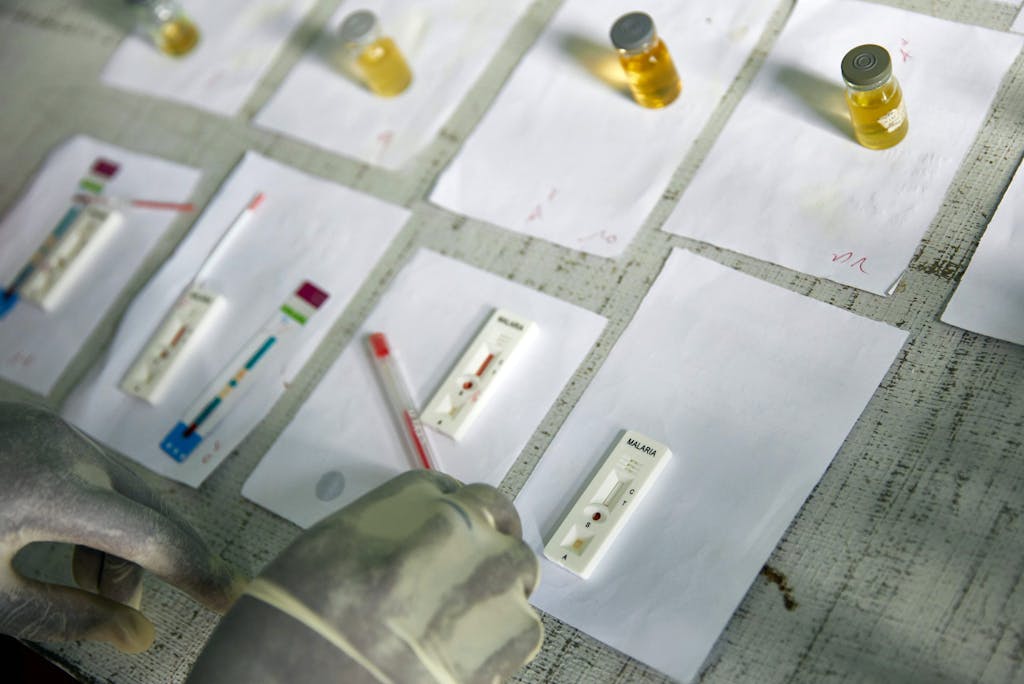In the African Great Lakes region, millions of refugees and migrant workers regularly cross borders, making conditions ripe for malaria transmission. But a new partnership among governments, civil society, and the private sector is pushing back and giving new meaning to regional cooperation in the fight against malaria.
The health threats that rocked the African continent in recent years — whether COVID-19 or Ebola — have reinforced an unassailable truth: Diseases don’t respect borders. Stopping their spread demands working across country lines.
Malaria is no different. In fact, the mosquito-borne disease thrives in border areas with high levels of cross-country movement. It’s well documented that human migration fuels the spread of malaria and other infectious diseases as well as complicates country-led efforts to track cases and prevent outbreaks. This is a significant concern in Africa, which accounts for 95% of the global malaria burden and is home to approximately 30 million displaced people and over 20 million migrant workers, many of whom live and work near country borders.

New in 2022, this Girubuzima health post will serve a community of 10,000 people and reduce the time community members have to walk to receive care—from 1.5 hours to 30 minutes. Photo: SC Johnson.
Cross-border coordination is one of the greatest barriers to malaria elimination across the continent. This is particularly pronounced in the African Great Lakes region. This cluster of malaria-endemic countries in East and Central Africa has endured decades of sustained conflict — notably, civil wars in the Democratic Republic of the Congo (DRC), Burundi, and South Sudan — that has displaced millions. These countries also share other common malaria transmission risk factors, including extreme weather patterns, insecticide resistance, rapid population growth, and limited financial resources. Despite the common malaria burden and risk factors, cross-country coordination to fight the disease has been limited — until now.
Enter the Great Lakes Malaria Initiative
Seven East and Central African countries — Burundi, DRC, Kenya, Rwanda, South Sudan, Tanzania, Uganda — and the autonomous region of Zanzibar are collaborating on a new level to eliminate malaria across the Great Lakes region. Hosted by the East African Community (EAC) and with support from SC Johnson and other stakeholders, the Great Lakes Malaria Initiative (GLMI) was launched with an ambitious goal of halving malaria cases and deaths in the region by 2025 from 2019 levels. Because the region carries 22% of all malaria cases worldwide, this new initiative has the potential to make a sizable dent in regional and global efforts to end the disease.

Health posts have laboratory capacity and are able to process tests—including rapid diagnostic tests for malaria—on-site. This allows positive patients to receive immediate treatment. Photo: SC Johnson.
Central to GLMI’s strategy is cross-border testing, treatment, and monitoring of malaria cases. With support from SC Johnson, GLMI will launch over 35 border-area health posts throughout the region to provide malaria prevention and curative services, along with other essential health services, and will support disease surveillance efforts. Through these health posts, GLMI is developing a malaria surveillance, preparedness, and response mechanism for the target cross-border areas.
SC Johnson will also provide repellent products, including its innovative Mosquito Shield™ spatial repellent; support entomological and insecticide resistance testing; and provide preventative education for 60 million people in the region, as part of its contribution to GLMI. But SC Johnson and these eight governments aren’t going it alone. Other global and regional stakeholders, including the African Leaders Malaria Alliance (ALMA), RBM Partnership to End Malaria, and Society for Family Health Rwanda, are helping advance the work of GLMI.
To achieve GLMI’s ambitious goal by 2025, GLMI governments and stakeholders will continue to explore new partnerships and innovative approaches focused on community elimination of malaria — not just control of the disease. With the right private sector support, it’s possible — companies have the potential to unlock resources and innovative tools to curb the spread of malaria. For example, a recent health post launch event at the Rwandan-Tanzanian border featured multiple private-sector companies that demonstrated drone-based larviciding (spraying of mosquito breeding sites) and indoor residual spraying to kill mosquitoes.

Children hanging out outside of the health post. Among the populations served by these health posts are pyrethrum (py) farmers and their families. Py is used as a key ingredient in vector control to help prevent malaria. Photo: SC Johnson.
United to Beat Malaria, Partnering for Impact
On top of these proactive measures, African Great Lakes countries are responding to active humanitarian crises in the region, notably in South Sudan and the DRC. Converging crises in these countries, from violent conflict and severe flooding to mass displacement, have constrained basic health services and created ideal environments for malaria outbreaks.
To bolster the region’s humanitarian response capacity, the UN Foundation’s United to Beat Malaria campaign is partnering with SC Johnson to support malaria projects in refugee camps across South Sudan and the DRC. Working closely with local governments and on-the-ground UN partners, these projects will help fill immediate gaps in malaria prevention, testing, treatment, and education and will reach hundreds of thousands of at-risk families in the region. Priority will be placed on displaced populations, young children, and pregnant women, who are most vulnerable to the disease.
It’s long been accepted that no one country or company can end malaria on its own. Cross-border cooperation and innovative public-private partnerships like GLMI are essential to tackle a challenge of this magnitude. But by harnessing the full power of our collective resources, country by country, region by region, we can finally beat malaria for good.






